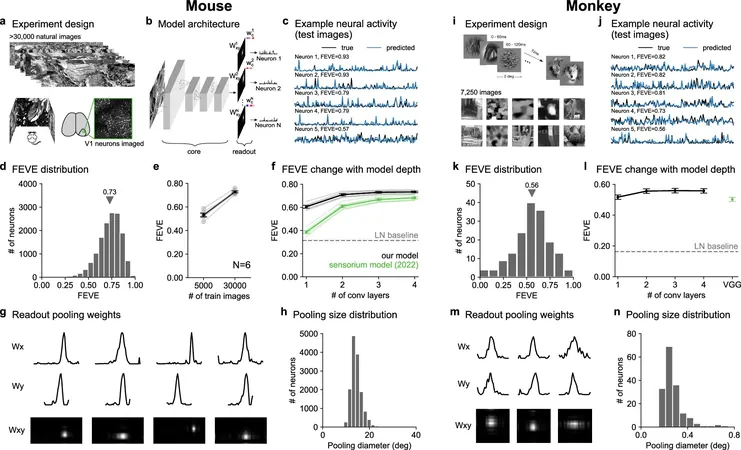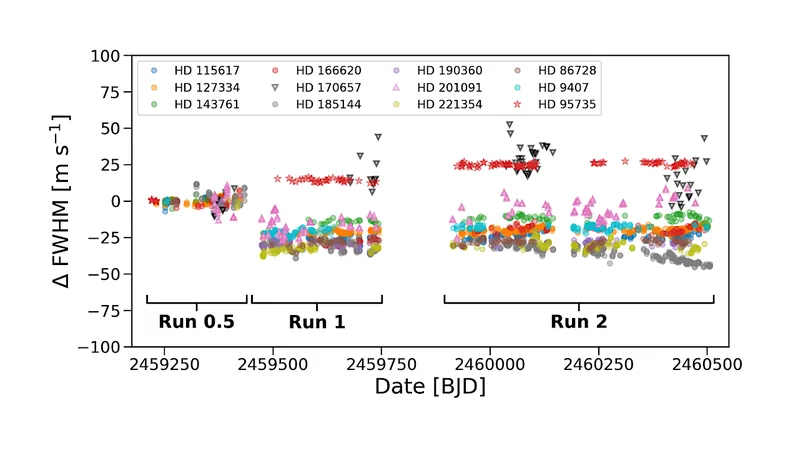
Unlocking Health: Can Smarter Shift Planning Save Workers from Sickness Absence?
2025-06-07
Author: Arjun
New Insights from Finnish Research on Shift Work
A groundbreaking study from Finland's Jyvaskyla University investigates how better shift planning can dramatically reduce sickness absence among shift workers. Senior specialist Jarno Turunen explores this pressing issue in his doctoral dissertation, shedding light on how shift characteristics impact health.
The Shift Work Dilemma
Shift work is a necessary fixture in many critical sectors, especially in healthcare where every moment counts. Turunen's research reveals that giving employees more say in their schedules can significantly influence both their health and the rates of sickness absence. The study also examines how a recent legislative change aimed at minimizing short shift intervals has affected worker health.
Understanding the Economics of Sickness Absence
At the heart of Turunen's research lies a unique perspective: viewing sickness absence not just as a health issue, but as a choice impacted by societal and employer pressures. The fine balance between work demands and personal time is crucial in determining whether a worker feels compelled to call in sick.
A Call to Action: Reducing Sickness Absence
"Addressing the sickness absence issue is vital for Finnish public health care," Turunen states. "By tackling this problem, we can ensure better service delivery and even help stave off a looming labor shortage. Shift characteristics are a powerful management tool in achieving this.”
Participatory Scheduling: A Solution?
The dissertation reveals that participatory shift scheduling—where workers have a say in their hours—can lead to a remarkable 7% reduction in short-term sickness absence. However, there’s a caveat: if not managed correctly, employees may create shifts that ultimately harm their health. It’s critical for both workers and supervisors to remain mindful of health impacts when designing shifts.
Legislative Changes Yield Positive Results
The study also highlights the effects of the Working Hours Act, which guarantees at least 11 uninterrupted hours off for irregular shift workers. Initial data shows a 13% reduction in sickness absences among those affected by this reform. Turunen concludes, "While we can’t eliminate shift work, we can certainly lessen its negative impacts."
A Unique Dataset and Expert Collaboration
Utilizing extensive work hour records from tens of thousands of shift workers in various hospital districts from 2014 to 2021, this research offers an unprecedented insight into the relationship between working hours and health. Turunen underscores the prestige of the Finnish Institute of Occupational Health, highlighting the significant contributions made by experts in this vital field.
Implications for the Future
The findings of Turunen's study have far-reaching applications for the development of irregular shift work planning. Stakeholders, including employees, supervisors, and policymakers, can leverage this research to create healthier, more efficient working environments for all.




 Brasil (PT)
Brasil (PT)
 Canada (EN)
Canada (EN)
 Chile (ES)
Chile (ES)
 Česko (CS)
Česko (CS)
 대한민국 (KO)
대한민국 (KO)
 España (ES)
España (ES)
 France (FR)
France (FR)
 Hong Kong (EN)
Hong Kong (EN)
 Italia (IT)
Italia (IT)
 日本 (JA)
日本 (JA)
 Magyarország (HU)
Magyarország (HU)
 Norge (NO)
Norge (NO)
 Polska (PL)
Polska (PL)
 Schweiz (DE)
Schweiz (DE)
 Singapore (EN)
Singapore (EN)
 Sverige (SV)
Sverige (SV)
 Suomi (FI)
Suomi (FI)
 Türkiye (TR)
Türkiye (TR)
 الإمارات العربية المتحدة (AR)
الإمارات العربية المتحدة (AR)